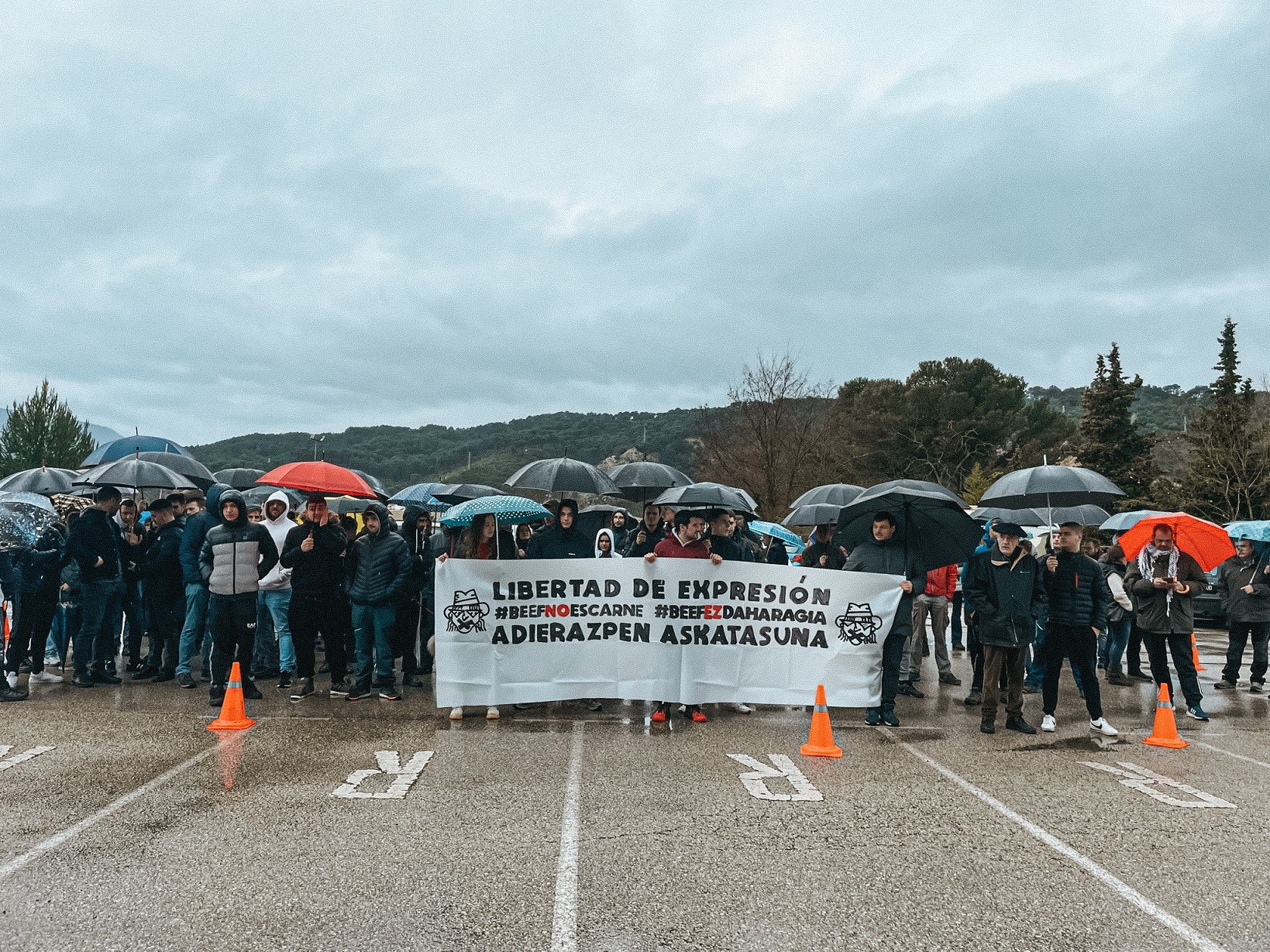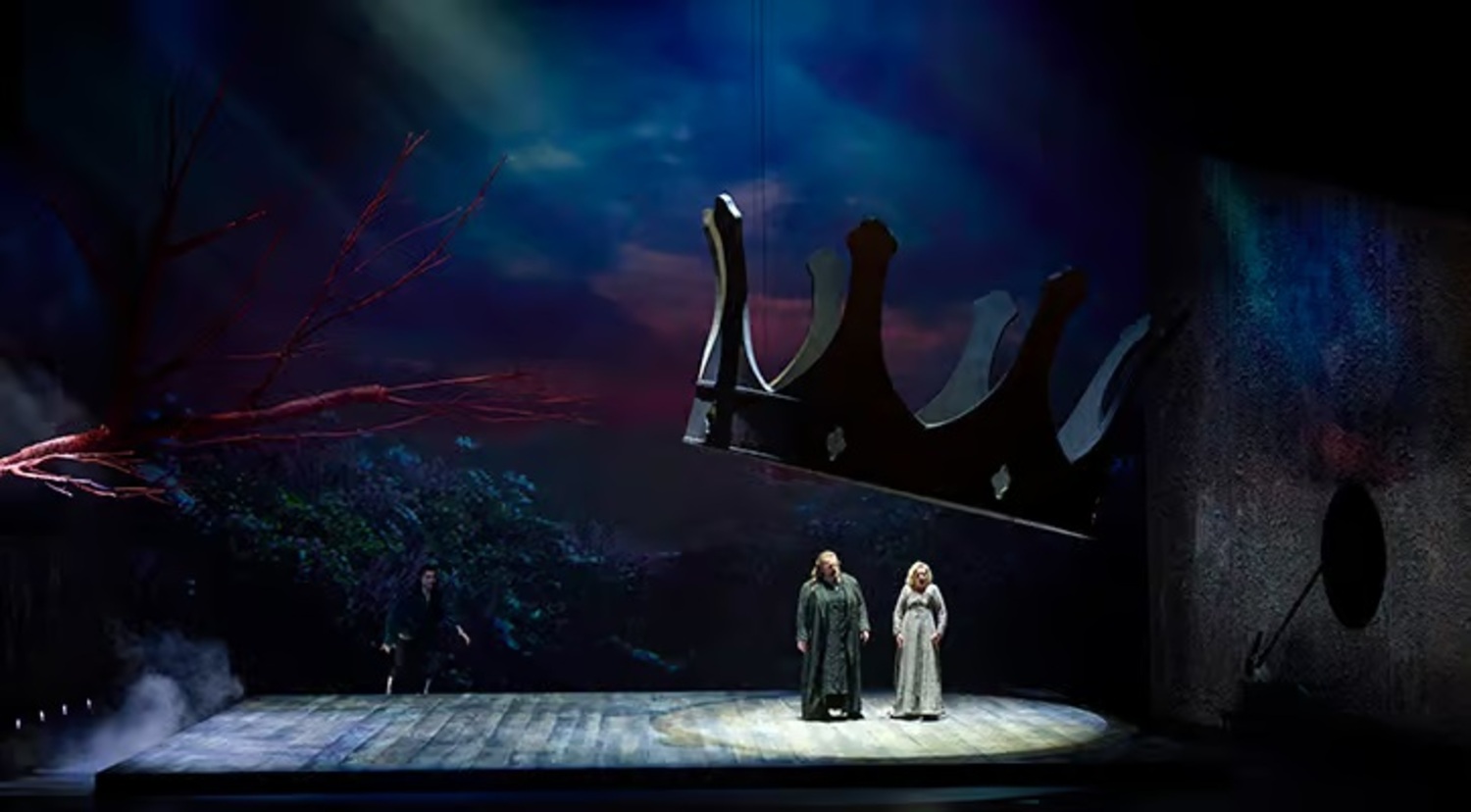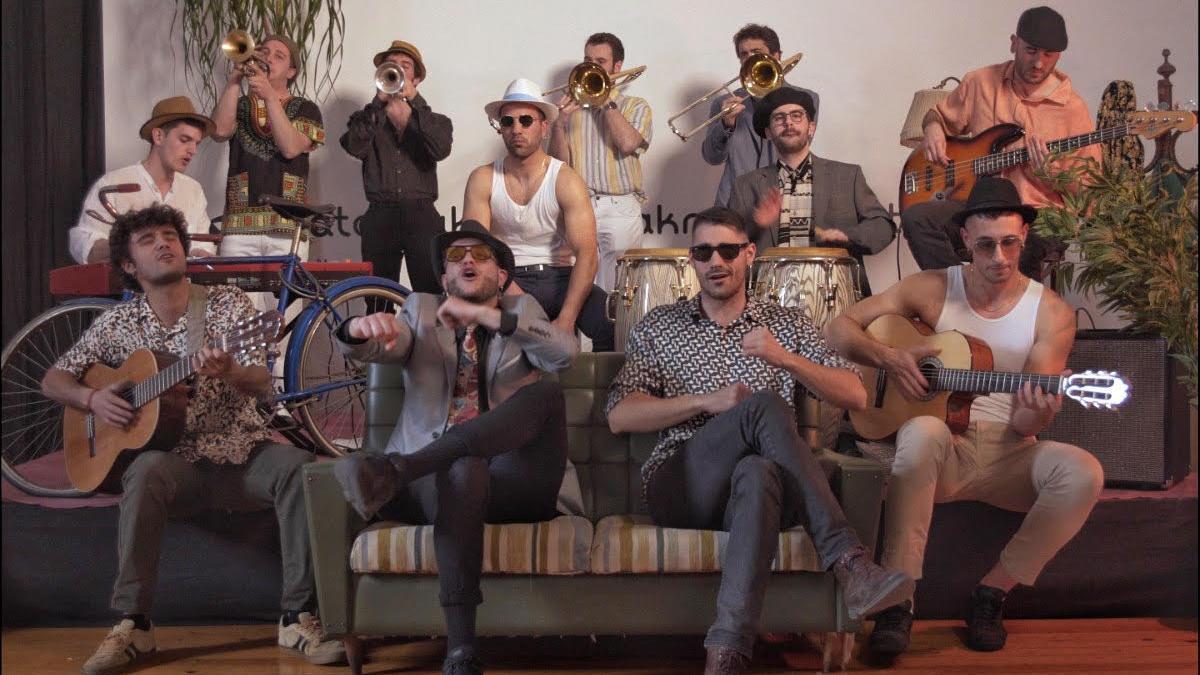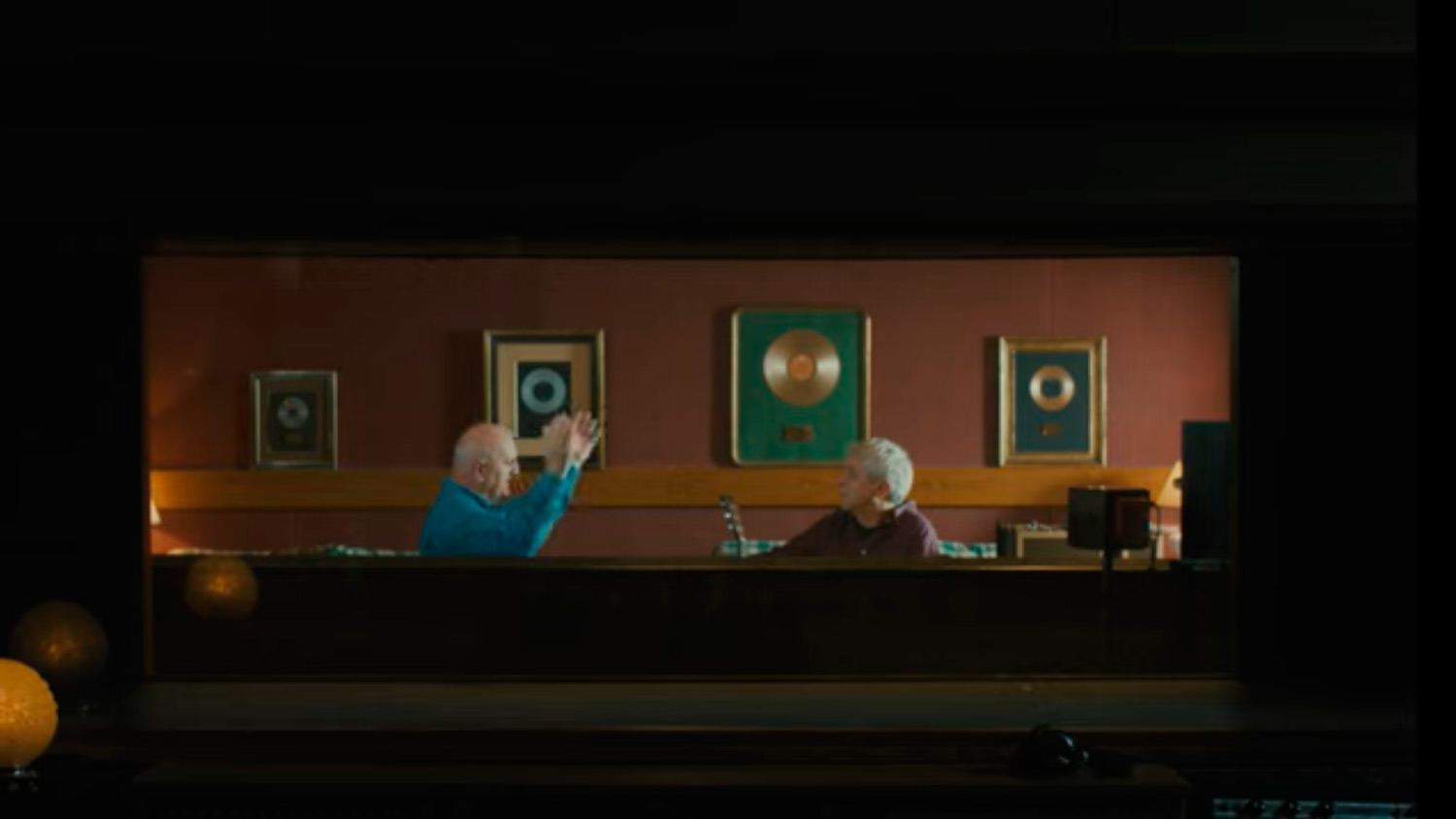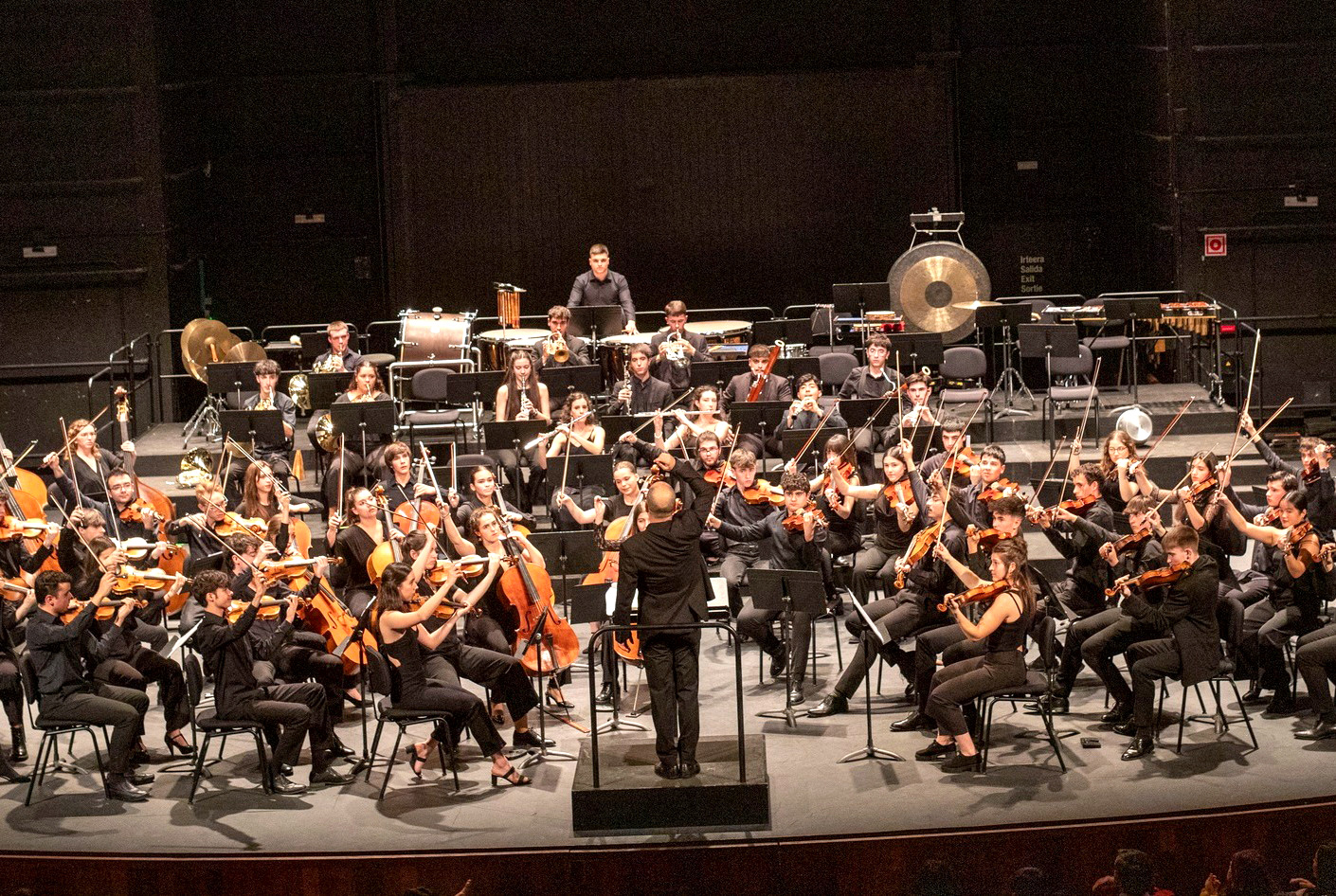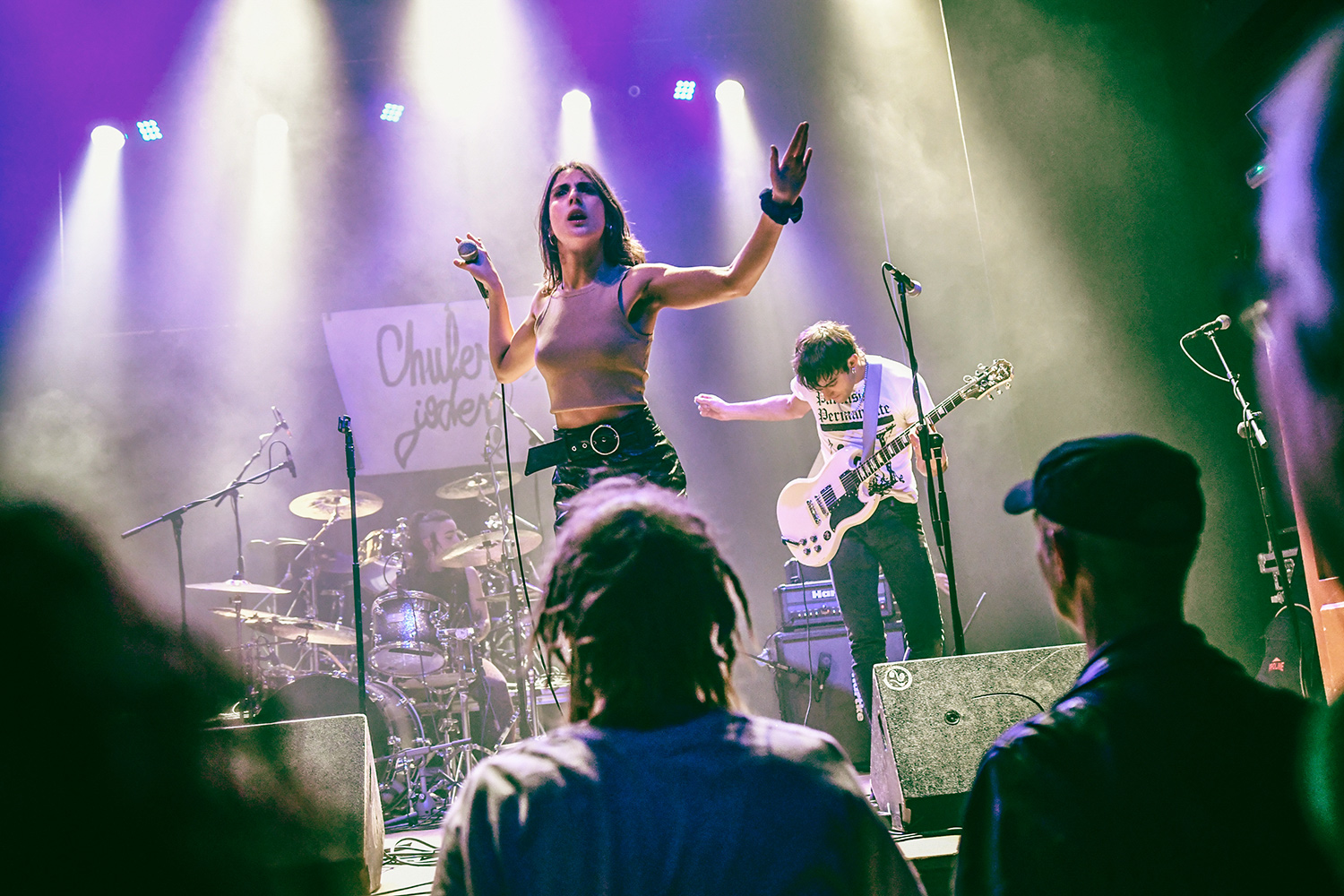Ourselves, in our own way
- The passion for organizing collectively has incarnated since time immemorial, among other things, in the field of culture. Concerts are occasions to bring people together, which is why we are going to make a corner in this report to the collective music. Instead of addressing the issue in such a broad way, we will focus on Álava, which has its own idiosyncrasy.

The music industry is growing and accumulating profits in recent years, with live performances and big festivals being one of the most exploited sources of income. As has often been denounced – among other things, with the controversy sparked by macro-festivals – there is looting behind the big profits: mainly from workers, musicians and spaces – because of its direct connection with gentrification and tourism.
It is a violent market: the largest company that organizes live performances worldwide has been accused of an illegal monopoly, and the trend is also to concentrate capital in the Basque Country. In general, contemporary capitalism and, in particular, the trends of the entertainment and music industry have led to cultural changes in the ways of living leisure and live music. It is said that there is fomo, the phenomenon of sold out, that music and concerts are products of commerce, made to consume and forget quickly, high prices of tickets, dynamics of influencers, followers and fans, fashions... In general, all experience and relationship is commercialized to the point that concerts become strange and unpleasant for some. The industry increasingly controls the production and distribution of music, but also its consumption or the way it is heard and lived. The consequences of the latter seem more and more evident, as the tabloid of the report will explain.
.jpg)
In this context, many musicians and fans opt for self-management to organize concerts and live events: to act with their own resources, outside commercial channels and without the intervention of companies and institutions, in the name of artistic and ideological freedom. Self-management is a principle and a tool, if not to counteract the brutal commercialization, at least one way to survive, to do it differently, according to other values.
We have spoken with members of some collectives who organize in Álava and live music according to these principles to collect some brushstrokes about the panorama. Not all the underground reality of Vitoria-Gasteiz has been collected, fortunately because it is varied and very wide, as well as the programming of all the bars and lounges. All this would require many more lines.
.jpg)
The first concert in the
last decade was organized in September 2016 by the Cerro Hotsak initiative, promoted by the Hala Bedi radio station and the Vitoria-Gasteiz Youth Centre, in the youth centre itself. The record label Ion Etxebarria Okantza (Arrasate, 1983) and the musician Aitor García de Vicuña (Vitoria-Gasteiz, 1992) were there.
Okantza explains that the initiative was born spontaneously and with simple objectives: “Like many other ideas in history, it occurred to us in a boat to bring groups we liked to our city and promote youth and radio.” It had its own name and aesthetics and was a reference for the collectives that would later emerge in the city. The concerts were held once a month, with cheap tickets so that anyone could come; striving to give good conditions and treatment to the musicians; and encouraging the presence of Basque and women. Every time they invited at least one group from the city to promote the local scene, and sometimes even larger groups, because with many concerts they lost money. “Above all, we wanted to bring our friends,” explains García de Vicuña.

Eight years later, in September 2024, the collective Hil Da Laboa (HDL) was born with a similar motive. Not in Vitoria, but in Murguía, in Zuia. Concerts are held once a month in the village. Gorka Intxausti (Ondarroa, 1995), one of the promoters, explains that they have also been driven fundamentally by their musical appetites. They were afraid that at first they would be able to bring people closer to a small town like Murguía, but they are very happy with the response they have had so far. They believe that the context has changed in recent years and that the power of entrepreneurs and institutions and the model of macro-festivals that they precipitate is gaining ground. In the face of this, they want to “spread the message against the commodification of art and commercial productions” and promote the self-managed local scene.
The Betepaeta project in Ondarroa has been the direct reference of the HDL collective; it is known closely from Intxausti because it is innate from Ondarrúa. Betepaeta was born in the youth center of Ondarro in 2022, initially with the intention of having a cycle of concerts, but as people join the organization, they have given the group a collective character and have recently presented themselves as a label.
Like the collective Hil Da Laboa, it should be noted that after the pandemic, between 2022 and 2024, numerous groups have emerged in the Basque Country. Wild Sounds, New Law, Slow Days, or No Obstacles collective, to name a few, all based on the Do It Yourself ethic. They are varied in style and unite both musicians and music lovers. There are many more collectives throughout the Basque Country, old and new.
There are also
collectives that are linked to a specific musical style. For example, the Gasteiz Soul Club, started last year by Okantza with other friends, organizes pintxos. I'm talking about Klask! They have been publishing fanzine since before, where they write about soul, countercultural and political tradition, but they believe that the club and live music can serve more to unite the community.
Assisted by Jorge González: “The occupied spaces, bars and lounges have remained in Vitoria-Gasteiz, probably because institutions and large companies have not invested as much in leisure and tourism as in San Sebastián and Bilbao”
The trajectory of the Gasteiz Hardocore Crew (GHC) is completely different. When GHC was founded, eight years ago, there was already a large enough community of bands and music fans back in this style, and in the other countries of the Southern Basque Country there were bands like this from before. GHC wanted to promote hardcore, spread the values of solidarity and participation, and politicize the scene. The musician Jorge González (Vitoria-Gasteiz, 1996), who worked there since its inception, is currently one of the conductors of the radio program La Bola Loca, which has taken over from the crew.
“We held round tables and workshops, as well as games between concerts, to get to know each other and create a good atmosphere for people to feel involved,” says González. He emphasizes that many of the founders of the group met each other making the song of the Youth Carp of the txosnas of Vitoria-Gasteiz, at the initiative of the collective MusikGerrilla.
.jpg)
MusikGerrilla defined itself as a “revolutionary collective music” and brought together dozens of young musicians from Álava. It was founded in 2012, following the model of MusikPueblo that would end the route shortly afterwards. After the great repressions and raids of previous years, with a certain change of context, the youth movement of Álava took forward several initiatives, such as the aforementioned Youth Tent and Music Guerrilla.
The collective was created to bring together and support many groups of young people who were in Álava at that time, but also to shake the cultural landscape. “It wasn’t exactly the label, but we did promotional work for small and alternative groups, we promoted self-publishing, we organized a musical marathon and even a collection of songs from the groups, we played at neighborhood parties...”, recalls García de Vicuña. It wasn’t exactly a band created to perform concerts, although it had a direct impact on this area.
In retrospect, it seems to him that in MusikGuerrilla they learned the habit of meeting and organizing, the importance of reflection and debate, the elaboration of political issues, as well as the creation of community. At MusikGerrilla, González also met García de Vicuña. It was a “school” for both of them and for others who have later been agents in the alternative scene of Álava.

Where we are and where we are
going Men have been the majority in these collectives. The importance of being aware of self-criticism and contradictions has been revealed in the colloquium. “Building safe spaces is a priority for us and the presence of women in the organization has an impact on that,” says Intxausti.
Aitor Garcia from Vicuña: “Now it’s less common on a Tuesday, for example, to be on the street for hours because you’ve been to a concert. We’re more at home, alone, watching series.”
When it comes to Vitoria-Gasteiz, González believes that the underground scene is healthy, not only in music, but also in many other artistic disciplines, such as theater or film lovers. “The occupied spaces, small and medium-sized bars and lounges have remained in Vitoria-Gasteiz, probably because institutions and large companies have not invested as much in leisure and tourism as in San Sebastián or Bilbao.”
A few years ago I had the opportunity to do some shows: “[In bars] on Tuesdays Parral, on Wednesdays Ibu, on Thursdays Gora, and on weekends countless occasions. Even now there are bars that, despite having private spaces, organize concerts for no commercial purpose, often with losses.”
For García de Vicuña, it is necessary to take into account that in his free time and in the habits of the people there is also a cultural change. “Now it’s not that common on a Tuesday, for example, to be up late because you went to a concert on the street. We’re more at home watching series alone, and the margin for spontaneity is also smaller: you can’t go to a conference, concert or theater without planning during the week, you feel like it’s getting late, your plans change.”
.jpg)
Leisure is increasingly individualized, at a time when the pace of life is too fast, the feeling of not getting anywhere, fatigue and discomfort are widespread, it is not surprising that we want to consume cultural products oriented to entertainment, simple and pleasant. The baker believes, however, that there is a possibility of influencing people’s habits, especially from the local level. If music and a good atmosphere are offered, people acquire the habit of going, and it also happens with particular musical styles: the hobby expands if the scene is promoted and there are resources. Contrary to self-promotion and the culture of competition, “if mutual knowledge and mutual support are encouraged, it bears fruit,” adds García de Vicuña.
The way we listen to music has also changed and influences the way we live the live ones, says Intxausti. In fact, you can listen to music before watching it live on streaming platforms and decide if you like it or not. It has its advantages, of course, but also its risks. There may be a tendency to only listen to music that you like instantaneously, that easily captures you, or that the algorithm gives you. It is possible to promote a wider musical culture by attending concerts in the village, making an effort to familiarize people, to value new things, to listen to things with more complex messages. In addition, Intxausti insists that live sessions are, above all, a collective experience and that they want HDL to be based on relationships that do not have commercial logic. It was precisely this “community” that made him interested in music.
In short, there is something that lasts: we all seek to create community and relationships at the base and connect more with artistic expressions that are “authentic and honest”, in the words of García de Vicuña. Those that are not conditioned by economic objectives and are socially significant, after all. Although the cultural industry has been modernized and sophisticated, diners believe that the actuality of self-management and Do-It-Yourself philosophy is absolute, so that non-commercial music and anti-commercial messages can have a place, and that concerts, etc. can be a space to build relationships according to other logics. They have asked for the involvement of both musicians and fans to continue influencing the scene.
Opera 'Tristan und Isolde'
Bilbao Symphony Orchestra. Directed by: Assisted by Erik Nielsen.
The Bilbao Opera Choir. Directed by: Assisted by Boris Dujin.
The stage director: To the Allex Eagle.
The soloists: I'm talking about R. Assisted by Nicholls, G. By Hughes Jones, M. The... [+]
Party and recreation. Oral History of Rock Radical Vasco
Javier 'Jerry' Corral
Books, 2025
------------------------------------------------
Javier Corral ‘Jerry’ was a student of the first Journalism Promotion of the UPV, along with many other well-known names who have... [+]
All
WHEN: January 18th.
IN WHICH: Jimmy Jazz of Vitoria-Gasteiz.
----------------------------------------------
I have a question in my mind lately: how much do things change in 30 years? Yes, reader, you guessed it: I’ve just turned three decades old. It will be a... [+]
Itoiz, udako sesioak filma estreinatu dute zinema aretoetan. Juan Carlos Perez taldekidearen hitz eta doinuak biltzen ditu Larraitz Zuazo, Zuri Goikoetxea eta Ainhoa Andrakaren filmak. Haiekin mintzatu gara Metropoli Foralean.
Sawdust
Olaia Inziarte
Panda, 2024
-------------------------------------------
Fourteen songs written during the Depression. Olaia Inziarte presented it in the first late night in Basque that can’t be mentioned now. The bru-ta-la piece Sawdust opens the disc. A jazz... [+]
Since Benito Lertxundi, who told us that he will leave the scenes for ever, we have been there for several weeks, and since then many of us have felt orphans in one way or another, with a sense of loss or abandonment, sad. To Iruindarro, at least, we will remain forever honored... [+]
Nafarroa Arenan Mitoaroa ikusten izandako lagun batek “telurikotzat” jo zuen entzun-ikusi-sentitutakoa. Niri ere hala iruditu zitzaidan telebista medio etxetik hauteman nuena.
Pentsa daiteke Mitoaroak piztutako grinak eta atxikimenduak proiektuaren ikusgarritasuna... [+]
Basque Country Herriko Gazte Orkestra. Winter Meeting
Director: Iker Sánchez.
Narrator: Kepa Errasti.
Programme: Works by Britt and Beethoven.
Place: Victoria Eugenia Theatre, Donostia.
Day: 2 January.
-----------------------------------------------
After 27 years, we... [+]
Chulería, fuck!
WHEN: 5 January.
WHERE: At the Kafe Antzokia in Bilbao.
----------------------------------------------------
As I filled the room, looking down behind the railing above the theater, I've been playing to see if I find someone younger than me before the... [+]
Beyoncé at the break of an American football game in Houston, Texas. The American singer has come to the center of the stadium in a cowboy suit that she's had access to. The hat covers the nice, the legs the boots long to the knees. The scarce white suit shows her thighs and... [+]











